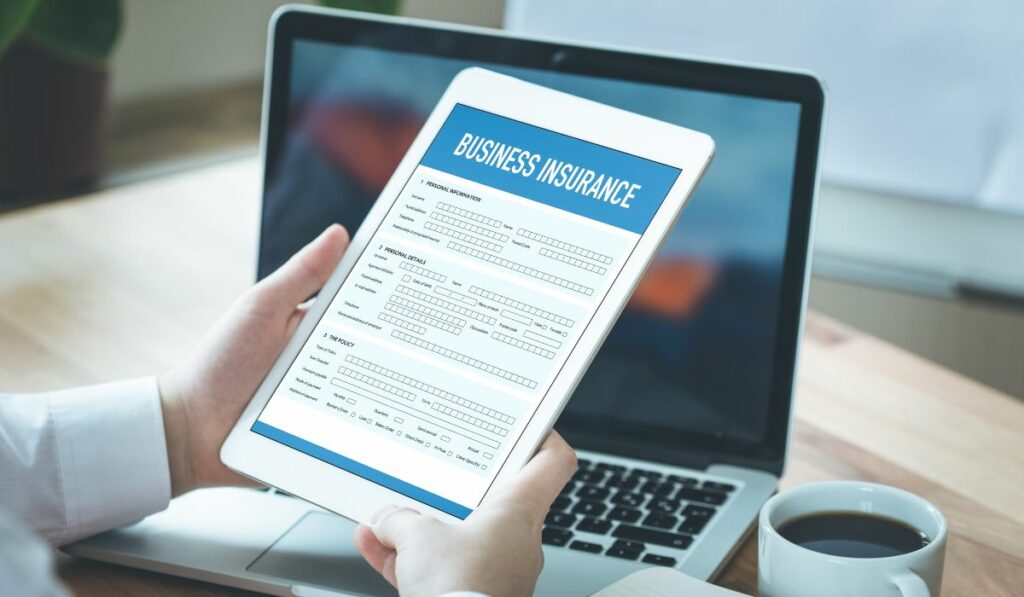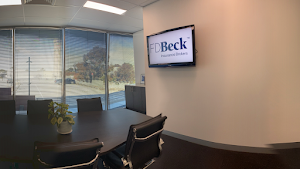- Professional Indemnity
Our ability to access markets, undertake portfolio reviews enables our client to make successful decisions
- Public Liability
Our ability to access markets, undertake portfolio reviews enables our client to make successful decisions
- Business Insurance
Our ability to access markets, undertake portfolio reviews enables our client to make successful decisions
- Consultants Insurance
When things go wrong, liabilities may affect your assets and reputation. That’s where FD Beck may help you through our competitive consultant and consulting business insurance.
- Advertising Agents Consultants
- Aged Care Consultants
- Agricultural Consultants
- Air Cargo Consultants
- Air Pollution Consultants
- Aquaculture Consultants
- Business Process Improvement Consultants
- Catering Consultants
- Change Management Consultants
- Communications Consultants
- Compliance Consultants
- Education Consultants
- Energy Efficiency Consultants
- Engineers & Construction
- Entomology Consultants
- Environmental Consultants
- Freight Forwarding
- Flora and Fauna Consultants
- Food Consultants
- Forestry Consultants
- Geological Consultants
- Government Consultants
- Health and Safety Consultants
- Heritage Consultant
- Home Sustainability Consultants
- Horticultural Consultants
- Hospital and Healthcare Consultants
- Hospitality and Hotel Management Consultants
- Human Resource Consultants
- Hygiene Consultant
- Image Consultant
- Industrial Relations Consultants Insurance
- Management Consultants Insurance
- Market Research Analysts Insurance
- Marketing Consultants Insurance
- Mediation Consultants
- Meteorologist Insurance
- Museum Consultants Curators
- Occupational Health and Safety Consultants
- Organisation Design Consultants
- Pool Safety Inspector
- Public Relations Consultant
- Quality Assurance Consultants
- Risk Management Consultants
- Recruitment Consultants
- Research and Policy Advisory Consultants
- Sewerage Consultants
- Solar Energy Consultants
- Strategic Planning Consultants
- Textile Consultants
- Traffic Management Consultant
- Waste Management Consultants
- Wine Industry Consultants
- Winemakers / Oenologists Consultants
- Workflow Efficiency Consultant
- Writers Consultants
- Owner Builder
Our ability to access markets, undertake portfolio reviews enables our client to make successful decisions
- About FD Beck
Our ability to access markets, undertake portfolio reviews enables our client to make successful decisions
Company
Expert Tips on How to Get Insurance for Your Business in Australia
Running a business without adequate insurance coverage can expose you to financial losses, disrupt operations, and damage your reputation.
As a business owner, insurance is one of the most important investments you can get to protect your business. Insurance provides protection and peace of mind, safeguarding your business against unexpected events that can cause financial losses, disrupt operations, and damage your reputation. We’ve compiled this guide to provide you with expert tips on how to get insurance for your business and ensure that your company is protected for the long term.
Table of Contents
7 Steps in Buying Business Insurance
We’ve put together the steps in buying business insurance to assess your insurance needs, find the right provider and policy, and ensure your business is protected against potential risks and liabilities.
- Assess Your Insurance Needs: Before purchasing business insurance, you need to assess your insurance needs by identifying the potential business risks and liabilities that your business faces. For example, if you own a construction company, you need Contract Works & Liability insurance to cover accidents on the job site.
- Research Insurance Companies: Once you have identified your insurance needs, an insurance broker will research insurance providers to find one that offers the coverage you need at a price you can afford. Look for insurance brokers specialising in business insurance with an excellent reputation for customer service and claims handling.
- Compare Coverage Options and Prices: An Insurance Broker will identified potential insurance providers, compare their coverage options and prices to find the best fit for your business. Compare the types of insurance and amounts of coverage offered, as well as deductibles and premiums.
- Request Quotes: Provide your insurance broker with as much information as possible about your business and its operations to get an accurate quote. Once your insurance broker has this information they can request quotes from the insurance providers and compare coverage and pricing.
- Review and Compare Quotes: Once your insurance broker has received quotes from insurance companies, they will review and compare them carefully to help you make an informed decision. Look at the type of coverage options, deductibles, and premiums to determine which provider offers the best value for your business.
- Purchase a Policy: After your insurance broker has helped you selected an insurance provider and policy, you can purchase the policy by signing the agreement and paying the premium. It is important to consider the business insurance policy carefully and understand the terms and conditions.
- Review Your Policy Annually: Finally, it is important to review your policy annually to ensure that it still meets your insurance needs. As your business grows and changes, your insurance needs may also change, so making adjustments as necessary is important.

Types of Business Insurance
Different business insurance are available to protect your company against additional risks and liabilities. From general liability to workers’ compensation, there are various insurance policies to choose from.
Below is a list of the common types of business insurance, as well as their benefits and considerations, to help you decide which policies are right for your business.
▸ General Liability Insurance:
General liability insurance protects your business against claims of bodily injury or property damage that may arise from your business operations. This type of insurance is important for businesses with a physical location or engaging in activities that could risk injury or damage to others. For example, a retail store may need general liability insurance to cover accidents on the premises.
▸ Business Property Insurance:
Business property insurance covers damage or loss of property that your business owns or rents, such as equipment, inventory, or buildings. This type of insurance is important for businesses with physical assets vital to their operations. For example, a manufacturer may need business property insurance to cover the cost of replacing damaged machinery.
▸ Workers’ Compensation Insurance:
Workers’ compensation insurance provides benefits to employees injured or ill due to their job. This type of insurance is mandatory in most states and is important for businesses of all sizes that employ workers. It is important to note that in many States in Australia, such as Victoria, there are several workers’ compensation agents like Allianz, CGU, QBE etc. who are authorised by the state government to provide workers’ compensation insurance to employers. These agents act as intermediaries between employers and the state workers’ compensation insurer, WorkSafe Victoria, and can help businesses obtain and manage their workers’ compensation insurance. For this reason, there is no need to engage an insurance broker like FD Beck, as you can deal directly with the workers’ compensation agent.
▸ Commercial Motor Insurance:
Commercial motor insurance covers vehicles used for business purposes. This type of insurance is important for businesses that own or lease vehicles for their operations. A delivery company may need commercial auto insurance to cover accidents that occur during deliveries.
▸ Professional Indemnity Insurance:
Professional Indemnity insurance, provides coverage for claims that may arise from errors or negligence in your professional services. This type of insurance is important for businesses that provide professional services, such as engineers, real estate agent, and professional consultants.
▸ Cyber Liability Insurance:
Cyber liability insurance covers losses from cyber attacks, data breaches, and other cyber-related incidents. This type of business insurance is not just important for businesses that store sensitive customer data, such as credit cards or personal health information. Cyber attacks are becoming more frequent and sophisticated, and no business is completely immune.
▸ Management Liability Insurance:
Management Liability Insurance is a type of insurance that provides coverage for a range of risks that can arise from the management and operation of a business. Here is a basic summary of what Management Liability Insurance covers:
Directors and Officers Liability: This coverage provides protection for the personal assets of directors and officers of a business, in the event that they are sued for a wrongful act, such as a breach of fiduciary duty, negligence, or other misconduct.
Employment Practices Liability: This coverage provides protection for claims arising from wrongful employment practices, such as discrimination, harassment, wrongful termination, or other related claims.
Crime Insurance: This coverage provides protection for losses arising from criminal acts committed by employees or third parties, such as theft, fraud, or embezzlement.
Statutory Liability: This type of insurance that provides coverage for businesses and individuals against legal liability arising from a breach of certain statutory or regulatory obligations. This type of insurance is typically purchased by businesses that are subject to specific laws and regulations, such as those relating to workplace health and safety, environmental protection, or consumer protection.
▸ Business Interruption Insurance:
Business interruption insurance covers losses resulting from unexpected events that cause your business operations to be interrupted, such as fires, storm or water damage. This type of insurance is important for businesses that rely on their physical business location or equipment to operate.
▸ Commercial Property Insurance:
Commercial property insurance covers for damage or loss to a business’s physical property, including buildings, equipment, inventory, and other assets. For example, a retail store may need commercial property insurance to cover damage to their storefront or inventory caused by a natural disaster, while a manufacturing plant may need coverage for damage to machinery resulting from a fire.

Ask for Brokers’ Assistance
Making the wrong choice regarding insurance coverage can expose you to potential risks and liabilities, which can cause financial losses and damage to your reputation. By asking for a broker’s assistance, you can receive expert guidance and personalised attention to find the types of coverage for your business.
For example, a small retail store needs general liability insurance to cover accidents on the premises. The store owner may need more time or expertise to research insurance providers and policies and know the specific coverage limits they need.
By asking for an insurance broker’s assistance, a store owner can receive personalised attention and guidance to find the right policy at an affordable price. In addition, an insurance broker can also help the store owner review their policy annually and make adjustments as needed to ensure that they remain adequately covered.
In this way, working with a trusted insurance broker like FD Beck can provide business owners in Australia with the peace of mind and protection they need to succeed in a competitive marketplace.
Frequently Asked Questions
We’ve listed the most frequently asked questions to help you evaluate options and select the best insurance for your small business.
Yes, you can combine different business insurance coverages into one policy. This is an effective way to protect your business from any potential risks that could arise. Combining other coverages into a single policy can save you time and money by reducing your premiums. It also means that all your business’s needs are handled in one place. Talk to an insurance provider today to learn more about combining different business insurance into one policy. That said, you still may need to purchase some policies individually, such as Management Liability, Commercial Motor or Cyber Insurance.
A Business Pack policy is a type of insurance policy designed for small to medium-sized businesses in Australia. It provides a broad range of insurance coverage in a single policy, which can be tailored to meet the specific needs and risks of a particular business.
A typical Business Pack policy may include coverage for:
Property damage: This provides coverage for damage or loss to buildings, contents, and other property belonging to the business.
Business interruption: This provides coverage for lost income and extra expenses that may arise as a result of an insured event, such as a fire or natural disaster, which forces the business to temporarily shut down.
Public and product liability: This provides coverage for legal liability arising from bodily injury or property damage caused to third parties as a result of the business’s operations or products.
Theft and money: This provides coverage for theft of property, including cash and securities, and also covers employee dishonesty.
Glass breakage: This provides coverage for damage to glass windows, doors, and other glass fixtures on the business premises.
Machinery breakdown: This provides coverage for the repair or replacement of machinery and equipment that breaks down due to mechanical or electrical failure.
Electronic equipment: This provides coverage for damage or loss to electronic equipment, such as computers, laptops, and printers.
Overall, a Business Pack policy is a comprehensive insurance solution that provides coverage for a range of risks that a business may face. It can be tailored to meet the specific needs and risks of a particular business, and can provide peace of mind and financial protection in the event of an unexpected event or loss.

Simon Pascoe
For the past 27 years Simon has enjoyed a career in the Insurance industry as both a broker and underwriter. Prior to being a director at FD Beck Simon had a successful 8‐year management career with one of the worlds largest general insurers, which saw him deal with and structure insurance programs for some of Australia’s largest insurance purchasers.
Ask Our Reliable Insurance Brokers Today!
FD Beck has made it easy to find the right policy. We offer various types of insurance, so you can rest assured that your company is protected.
Click now to get started on protecting your future with FD Beck!
Our Partners







© 2023 FD Beck & Sons Pty. Ltd – AFS License: 233784. ABN 68 004 455 038.
Terms, conditions, limits and exclusions apply to the products referred to above. The information provided here is general advice only and has been prepared without taking into account your objectives, financial situation or needs. You should consider these, having regard to the appropriateness of this advice, and the relevant Product Disclosure Statement, available by calling us on 1300 155 338, before deciding to acquire, or to continue to hold, this product.










